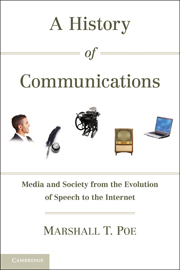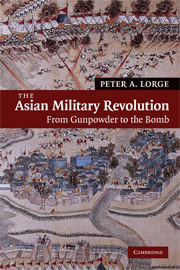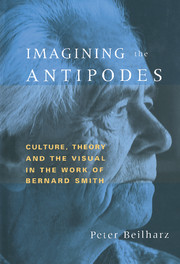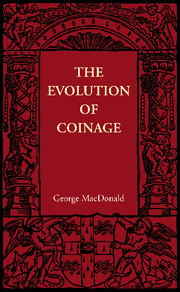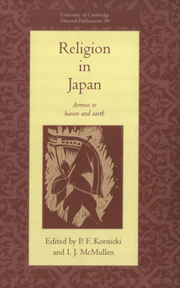A History of Communications
A History of Communications advances a theory of media that explains the origins and impact of different forms of communication - speech, writing, print, electronic devices and the Internet - on human history in the long term. New media are 'pulled' into widespread use by broad historical trends and these media, once in widespread use, 'push' social institutions and beliefs in predictable directions. This view allows us to see for the first time what is truly new about the Internet, what is not, and where it is taking us.
- Advances a new theory of media
- Revolutionises media-studies
- Takes us far past Marshall McLuhan, the Frankfurt School and the Post-Modernists
Reviews & endorsements
'Based on a truly impressive range (as well as amount) of reading, arguing an original and convincing thesis, and written in a lucid and engaging style, this book deserves to reach a wide audience of students and scholars alike.' Peter Burke, University of Cambridge
'The ambition and sweep of Marshall Poe's analysis of media make it different from anything else I have read on the topic. Many modern 'consumers' of media, in all its forms, have a vague sense that technological advances are altering their sense of the world in ways they can't fully appreciate in real time. Poe's book is a big advance in helping citizens understand the opportunities and problems the new media landscape offers.' James Fallows, The Atlantic
Product details
February 2011Hardback
9781107004351
350 pages
229 × 152 × 24 mm
0.68kg
5 b/w illus. 5 tables
Available
Table of Contents
- Introduction: media causes and effects
- 1. Homo loquens: humanity in the age of speech and memory
- 2. Homo scriptor: humanity in the age of manuscripts
- 3. Homo lector: humanity in the age of print
- 4. Homo videns: humanity in the age of the audio-visual media
- 5. Homo somnians: humanity in the age of Internet
- Conclusion: the media and human well-being.

